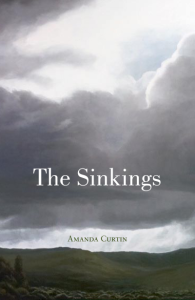Research played a major role in the creation of Kathleen O’Connor of Paris, and I learned a lot in the process. I had to. Narrative non-fiction is a new genre for me, and I knew I would need to be working from a strong foundation.
I also had a subject whose long life was lived in many places, and whose career would have to be examined from different perspectives.
Here are some of the resources I found particularly valuable.
Specialist art libraries
During the course of my research, I had the opportunity to visit the library of the Art Gallery of Western Australia; the National Art Library in the Victoria and Albert Museum, the Tate Gallery Library and the Courtauld Institute Library in London; and the Musée des Arts Décoratifs in Paris. The collections of these wonderful institutions include materials such as exhibition catalogues, collections of press cuttings, obscure recordings and publications, regional registers, dictionaries of artists—and probably many other things, but these are the ones I accessed.

Online archives
What would researchers in Australia do without Trove, the National Library of Australia’s searchable digital collection of Australian newspapers from 1803 to 1955? Thanks to Trove, along with the propensity of local nineteenth-century/early twentieth-century newspapers to report in great detail on just about every event that happened in the colony, I was able to get a sense of Kate’s adolescent years in Perth and Fremantle. Gallica, the online library of the Bibliothèque Nationale de France, was another source I used for locating press articles and reviews, although it is not a comprehensive collection of the national library’s resources.
Pay-for-view databases
I found it a sound investment to pay for a month’s subscription to ancestry.com in order to track genealogical resources relating to Kate and others. Similarly, a month’s subscription to an art auction database gave me access to several decades of auction sales, and to works of Kate’s I had not seen anywhere else.
‘Can you help?’
I placed a paragraph in this weekly column in the West Australian newspaper, asking for information from anyone who had known Kate or held her artwork. Although responses were few, each one of them was a gem—some wonderful anecdotes from a (then) young man who used to deliver art supplies to Kate; an artwork whose whereabouts I had not known of; a photograph of Kate that made me smile; contact from a family member; some details about the buying and selling of a much-loved painting.
Artworks
I’ve saved the best for last. I made a point of viewing as many of Kate’s artworks as I could locate during the course of researching her life, and the experience of seeing them up close was nothing short of thrilling. And I discovered something I had not known before: that the back of a painting—or at least of Kate’s paintings—has its own story to tell, in the form of inscriptions; old labels recording dates, prices, addresses, titles; exhibition history; sketches; even other works. The privilege of viewing these works in galleries, offices, store-rooms, vaults and private homes will stay with me as one of the most rewarding experiences of my writing life.















 Research is an inspiring, challenging, time-consuming, frustrating, exhilarating part of the process of writing a book. I know that some writers find it a chore, but for me it’s where ideas grow, and I am very much at home in libraries and archives or in front of my own laptop, exploring, speculating, following threads. The hardest part for me is to stop, as there is always another thread…
Research is an inspiring, challenging, time-consuming, frustrating, exhilarating part of the process of writing a book. I know that some writers find it a chore, but for me it’s where ideas grow, and I am very much at home in libraries and archives or in front of my own laptop, exploring, speculating, following threads. The hardest part for me is to stop, as there is always another thread…
